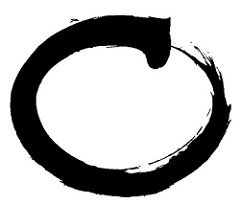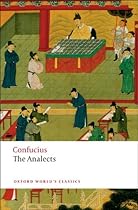Confucius & Lao Tzu – In this scene from the movie Confucius (2010) – Confucius speaks to Lao Tzu and the old master gives some precious advice to the younger one. In one minute – the essence of daoism and confucianism.
Confucius is a Chinese biographical fantasy adventure drama film written, and directed by Hu Mei, starring Chow Yun-fat as the titular Chinese philosopher.
Confucius (551–479 BC)[1] was a Chinese teacher, editor, politician, and philosopher of the Spring and Autumn period of Chinese history.
The philosophy of Confucius emphasized personal and governmental morality, correctness of social relationships, justice and sincerity. His followers competed successfully with many other schools during the Hundred Schools of Thought era only to be suppressed in favor of the Legalists during the Qin Dynasty. Following the victory of Han over Chu after the collapse of Qin, Confucius’s thoughts received official sanction and were further developed into a system known as Confucianism.
Confucius is traditionally credited with having authored or edited many of the Chinese classic texts including all of the Five Classics, but modern scholars are cautious of attributing specific assertions to Confucius himself. Aphorisms concerning his teachings were compiled in the Analects, but only many years after his death.
Confucius’s principles had a basis in common Chinese tradition and belief. He championed strong family loyalty, ancestor worship, respect of elders by their children (and in traditional interpretations) of husbands by their wives. He also recommended family as a basis for ideal government. He espoused the well-known principle “Do not do to others what you do not want done to yourself”, an early version of the Golden Rule. Wikipedia
A man who has committed a mistake and doesn’t correct it, is committing another mistake.
Act with kindness, but do not expect gratitude.
An inconvenience is an unrecognised opportunity.
Be not ashamed of mistakes and thus make them crimes.
Everything has its beauty but not everyone sees it.
Forget injuries, never forget kindnesses.
He that would perfect his work must first sharpen his tools.
He who speaks without modesty will find it difficult to make his words good.
He who wishes to secure the good of others, has already secured his own.
Hold faithfulness and sincerity as first principles.
I hear and I forget. I see and I remember. I do and I understand.
If a man keeps cherishing his old knowledge, so as continually be acquiring new, he may be a teacher of others.
If you look into your own heart, and you find nothing wrong there, what is there to worry about? What is there to fear?
Ignorance is the night of the mind, but a night without moon or star.
It does not matter how slowly you go, so long as you do not stop.
It is easy to hate and it is difficult to love. All good things are difficult to achieve; and bad things are very easy to get.
Learning without thought is labour lost; thought without learning is perilous.
Life is really simple, but we insist on making it complicated.
No matter how busy you may think you are, you must find time for reading, or surrender yourself to self-chosen ignorance.
Only the wisest and stupidest of men never change.
Our greatest glory is not in never falling, but in rising every time we fall.
Real knowledge is knowing the extent of one’s ignorance.
Recompense injury with justice, and recompense kindness with kindness.
Respect yourself and others will respect you.
The essence of knowledge is: Having it, to apply it; Not having it, to confess your ignorance.
The firm, the enduring, the simple, and the modest are near to virtue.
The gem cannot be polished without friction, nor man perfected without trials.
The grass must bend when the wind blows across it.
The greatest glory is not in never falling but in rising up every time we fall.
The superior man acts before he speaks, and afterwards speaks according to his actions.



